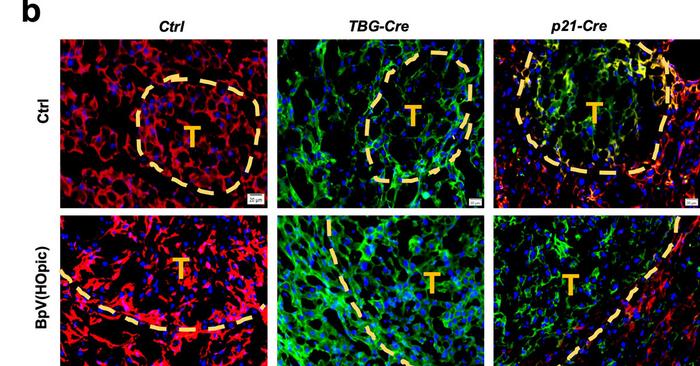Scientists at the University of California San Diego School of Medicine have unveiled groundbreaking insights into the progression of liver cancer, a disease that ranks as the sixth most commonly diagnosed cancer and the fourth leading cause of cancer-related deaths globally. This research delves into the mechanisms that drive the transition from metabolic dysfunction-associated steatohepatitis (MASH) to hepatocellular carcinoma (HCC), revealing the intricate relationship between cellular metabolism and DNA damage. The findings not only enhance our understanding of cancer origins but also open potential avenues for prevention and treatment, fundamentally linking dietary habits with cancer’s interplay at the cellular level.
Recent statistics indicate that the incidence of HCC has surged by 25% to 30% over the past two decades, largely due to the increased prevalence of fatty liver disease, which affects approximately a quarter of the adult population in the United States. A staggering 20% of individuals with fatty liver disease suffer from MASH, a severe form that significantly elevates the risk of HCC. However, the underlying processes that facilitate this transition from MASH to liver cancer have been shrouded in mystery until now. The researchers sough to address this critical gap in knowledge.
The crux of the study involved utilizing both mouse models and human tissue samples. The researchers observed that diets rich in fats and sugars, which induce MASH, lead to significant DNA damage in liver cells. This damage spurs the cells to enter a state of senescence, wherein they cease to divide yet remain metabolically active. While cellular senescence typically serves as a protective mechanism, allowing for damage repair before cells proliferate, the study highlights a disturbing reality: certain damaged liver cells survive this process, posing a latent oncogenic threat.
Professor Michael Karin, a key figure in the research, emphasized the alarming nature of these senescent liver cells. Their unpredictable behavior can be likened to “ticking time bombs,” having the potential to re-enter the cell cycle and proliferate uncontrollably, ultimately leading to a cancerous state. This finding underscores the importance of understanding not just the dietary triggers of liver disease, but also the consequent cellular responses that can facilitate cancer progression.
In analyzing tumor DNA, the researchers found compelling evidence that HCC originates from liver cells damaged by the MASH-inducing dietary patterns. This vital link between diet-induced DNA damage and liver cancer development was elucidated through comprehensive genomic analyses, further supporting the notion that nutritional choices have profound implications on our health at a molecular level.
The study elucidates the direct ramifications of poor dietary practices on cellular metabolism and, by extension, cancer development. Karin’s poignant statement likening the long-term dangers of a poor diet to those associated with cigarette smoking stirs a call to action for public health initiatives. There is a pressing need to reframe societal perceptions of diet as a fundamental determinant of overall health, particularly in how it relates to chronic diseases like cancer.
By navigating the complexities of liver cancer’s etiology, this research not only has the potential to influence future therapeutic strategies but also stands to reshape public health messaging surrounding dietary habits. Given the staggering rates of liver disease and cancer, mobilizing communities to reconsider their dietary choices is vital—a reality that could significantly alter cancer trajectories down the line.
As more research unfolds, it is anticipated that the molecular insights gleaned from this study will propel further investigations into the role of diet in other cancers, making this work a pivotal stepping stone in cancer biology. By establishing a direct and measurable connection between dietary factors and carcinogenesis, the groundwork is laid for future studies aimed at delineating similar pathways in various types of cancer.
In conclusion, the implications of this research reach far beyond the confines of the laboratory. They emphasize the significance of dietary choices and their long-lasting effects on health. The potential to mitigate the risk of liver cancer through dietary interventions could empower individuals to take control of their health, marking a transformative shift in how we approach cancer prevention in the context of lifestyle choices. As science evolves and continues to uncover the rich tapestry of our biological responses, the interplay of diet, cellular health, and cancer remains a dynamic frontier waiting to be explored.
Subject of Research: The relationship between dietary habits and the development of liver cancer through cellular mechanisms.
Article Title: Dietary Choices and Liver Cancer: Unraveling the Connection Between Metabolism and Disease
News Publication Date: October 2023
Web References: Nature Article
References: DOI: 10.1038/s41586-024-08317-9
Image Credits: Credit: UC San Diego Health Sciences
Keywords: Liver cancer, fatty liver disease, cellular metabolism, DNA damage, metabolic dysfunction-associated steatohepatitis, senescence, cancer prevention, dietary interventions.





